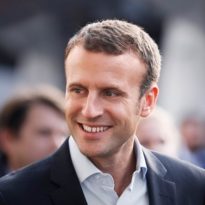When Emmanuel Macron and his upstart party En Marche! won both the French presidential and legislative elections, comparisons with Justin Trudeau abounded. A progressive sounding super-centrist, doing politics differently, young and photogenic, with a set of vague principles and great slogans allowing a large tent of voters to feel comfortable to cast their ballots in his favour. He was all things to all people.
But unlike Trudeau, less than three months after his triumph, Macron's popularity is crumbling. He has lost 10 points in the last month. This was a very short honeymoon, atypical even for France. Macron is brought back to earth, having to deal with the reality of the exercise of power. The Macron brand has suffered from missteps, flip-flops and a slow economy, while Trudeau has yet to pay the price for similar problems.
Even more than Trudeau's Liberal Party, En Marche! is Macron's party. There is no legacy, there is no sense of depth for the young movement, so all hopes and expectations were on Macron. With the traditional parties now in complete shambles, Macron is now the sole focus of all scrutiny and criticism for his choices.
Macron wants to save 4.5 billion euros before the end of 2017 and reign in the public deficit before 2018. He is asking everyone to make an effort, which is not quite what he offered France during the election. A defence budget cut of 850 million euros has attracted the wrath of the military. Plans to reduce local and regional authorities spending by 13 billion euros by 2022 is creating regional discontent. Universities have seen 331 million euros of appropriations cancelled for 2017. Unions and students are mobilizing against Macron's "politics of austerity." The reform of the Labor Code is a ticking time bomb.
It seems that there is an awakening from all the French who did not vote for Macron on the first Presidential ballot, preferring another party or abstention all together. Even those who ended up voting for him on the second ballot are having second thoughts. Not because they wish they had voted for Le Pen's National Front, mind you, but because they are not quite sure what they actually ended up with.
The euphoria of change, stemming from electing a young president ready to break conventional politics doubled with a completely transformed legislative body, is dissipating faster than the promised changes are appearing.
The old reflexes reappear among socialist and republican voters, in search of their lost traditional axis of debate in the face of this intangible politician. Unable to put a finger on his ideology, too conservative for the left, too multiculturalist for the right, they are still trying to figure him out. Euphoria has morphed into perplexity. Is la République en marche, as it is now known, a movement by and for the people or a party for a select elite club? What is its political philosophy? What kind society does it want to build? On what values?
How will the great reforms, promised for the fall, materialize? Some French are still hoping for a revolution, but chances are it'll be quite gentle. The first signs of governance highlight a dissonance between the election sloganeering, the post-election rhetoric and the actual actions of Macron. In Canada, Trudeau has been able to surf on the small waves of discontent triggered by his broken promises. In France, many first hour supporters of Macron are already expressing doubts and showing impatience about the current pace.
Like Canadians with Trudeau, the French were expecting an ambitious agenda from Macron. Unlike Canadians, they're already growing impatient with the lack of tangible deliverables.
Photo Credit: Rolling Stone






